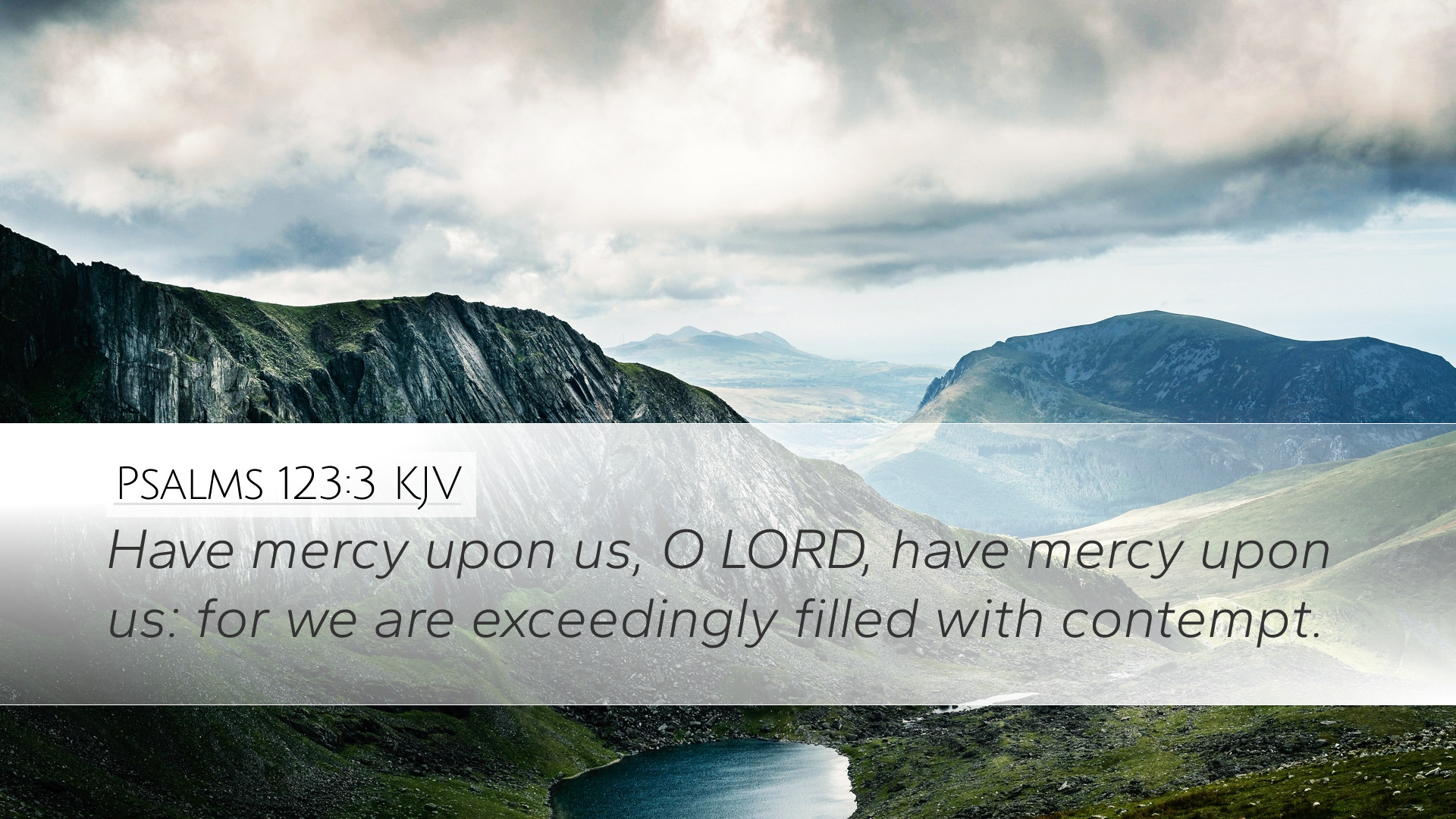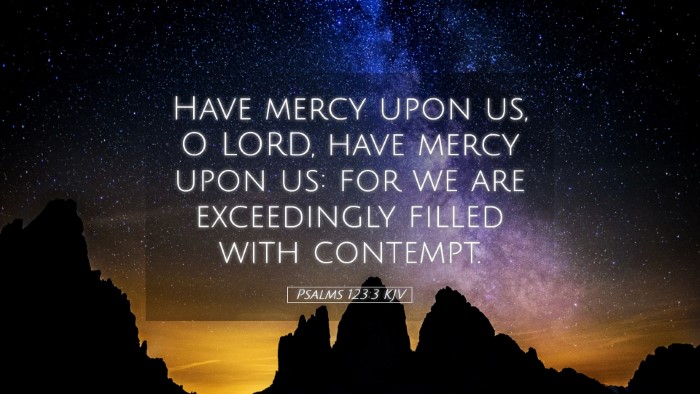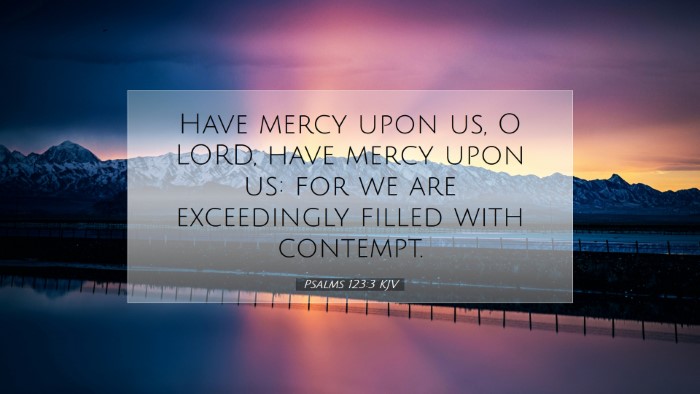Psalms 123:3: Commentary Overview
This verse presents a profound expression of reliance upon the Lord, highlighting both the earnest plea of the psalmist and the broader thematic elements of dependency and mercy that resonate throughout the Psalms.
Text of Psalms 123:3
"Have mercy upon us, O Lord, have mercy upon us: for we are exceedingly filled with contempt."
Contextual Background
This verse is situated within a context of communal lament, where the faithful are calling upon God during a time of distress and scorn. The plea for mercy is not just personal but reflects a collective recognition of their plight amidst oppression and derision.
1. The Plea for Mercy
The repetition of the phrase "have mercy upon us" emphasizes the gravity of their situation and the urgent need for divine intervention. According to Matthew Henry, mercy is a fundamental aspect of God's character, and the psalmist recognizes that only by appealing to this divine attribute can they hope to find relief from their suffering.
Albert Barnes notes that this plea acknowledges their helplessness and contrasts the contempt they experience from others. It serves as both an admission of their weakness and a declaration of their faith that God is capable of delivering them from their circumstances.
2. Contempt and Oppression
The phrase "exceedingly filled with contempt" reveals a feeling of deep humiliation. Adam Clarke elaborates that this contempt comes from those who disregard the people of God, deeming them worthless or foolish. The psalmist expresses an acute awareness of the scorn directed towards them, which intensifies their appeal to God for mercy.
This contempt can be understood in various ways: as social ostracism, theological derision, or even persecution. It exemplifies the trials that believers face in their faith journey, as they often stand in stark contrast to prevailing worldly values.
3. Theological Reflections
The invocation of God's mercy suggests a rich theological underpinning that intertwines human vulnerability with divine compassion. The psalmist's deep need for mercy reflects a fundamental aspect of the human condition. Matthew Henry asserts, "We must often be filled with contempt by the world, yet still look up to God." This duality is essential for believers as they navigate their faith amidst challenges.
Albert Barnes posits that this verse vividly illustrates the contrast between the believer's experience and God's gracious potential to uplift and redeem. It invites scholars and pastors alike to meditate on the profound nature of divine mercy, especially in dire circumstances.
Applications for Pastors, Students, and Theologians
- Faith in Distress: Pastors can draw on this verse to illustrate the importance of faith when facing societal scorn and personal grief.
- The Nature of God’s Mercy: This verse can inform theological discourse regarding the attributes of God, particularly His mercy, which is essential for understanding the character of God in relation to human suffering.
- Communal Lament: Students of the Bible can benefit from examining the communal aspects of lament found in this psalm and how it reflects the role of community in faith.
- Encouragement for Believers: The metaphoric imagery of looking to God amidst contempt offers encouragement for believers facing modern-day challenges and scorn.
Conclusion
Psalms 123:3 serves as a poignant reminder of the necessity for mercy, the reality of contempt, and the power of communal faith. The insights provided by notable commentators enrich our understanding of this verse, inviting pastors, students, and theologians to engage deeply with its themes. In a world still filled with scorn for those who seek to follow God's ways, the plea for mercy remains as relevant today as it was in the psalmist's time.


